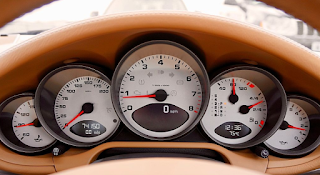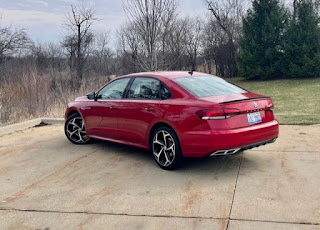Does Zero to 60 MPH Really Matter?
Imagine you’re me: someone who has used 0-60 MPH to judge how fast a car is. If a car is slower than 8.0 seconds, I wouldn’t poke it with a 10-foot pole. If it’s faster than 4.0 seconds, I cling to it to feel the rush and acceleration. That was until I was a short-lived car salesman and automotive blogger. As a car salesman, I found out that people didn’t understand or care that their vehicle did 0-60 MPH in 6.7 seconds. As a blogger, performance enthusiasts did care, but there are other statistics that mattered more. When I combine both, which happened at different parts of my life so there was no conflict of interest, I found out that 0-60 MPH has a few flaws.
Let’s start with the obvious question: “Anthony, why do we measure performance with 0-60 MPH? That sounds really random and weird.” The obvious answer: Americans aren’t exactly the most informed about the metric system. Non-obvious answer: In the metric system, the measurement for performance is 0-100 kilometers per hour or KPH. That translates roughly to 62 MPH, which is rounded down to 60 MPH. Due to this, all vehicles are judged on how quickly they can accelerate to this number.
Part of me understands why we measure this. It’s ingrained in us that these numbers matter. As I said, I would rather take a car that would go from 0-60 in 4 seconds compared to 8 seconds. Especially with electric car manufacturers like Tesla, 0-60 times are plummeting. It is fun to drive something that you know is going to be fast because of these numbers. For enthusiasts, knowing a car’s basic stats like 0-60 MPH makes it simple to pick between different vehicles. These measurements can also be skewed. Like trying to weigh yourself on different scales, 0-60 MPH times can vary. Sometimes they are even quicker than what the manufacturer says while other times they can be a full second slower. So, this all makes sense now, right?
No. No, it doesn’t. Problem number one: Who goes from 0-60 MPH as quickly as they can? I know I don’t. Here are a few ways that, combined, make up this number. Most cars have a sport mode that can make the car faster by making the engine more vivacious. Combine this with something called launch-control which is used to “launch” the car as easily as possible—cars are measured and given their number.
These measurements aren’t accurate because not everyone will get the same results. Like trying to weigh yourself on different scales, 0-60 MPH times can vary. Sometimes they are even quicker than what the manufacturer says while other times they can be a full second slower. Can I try to go 0-60 MPH? Sure, but on public roads, it just doesn’t make sense. I live in the suburbs far enough from Chicago that the roads are usually under construction with many police officers who want to pull you over for going too fast. I also live by a highway that can get to 70 MPH after about 20 miles. Even on the highway, I can probably count a few times I went from 0-60 MPH, and it was a lot slower than what VW told me.
Problem number two: People don’t understand or care. When I was selling a German luxury brand, I would spout out all the facts and figures I knew about the vehicle. One of them would be the horsepower, along with the torque and 0-60 MPH figures. Most of them didn’t care unless we were talking about the performance versions of the car. Instead, they would rank how the car feels on the road, how the car does on the highway, technology, fuel economy, and looks. Yes, performance can factor into this but if you want a hybrid or a frugal vehicle, you either know it won’t be as fast as a BMW M3 or don’t really care since you’ll get almost triple the fuel economy.
Problem number three: Bragging rights. “My brand-new car can go 0-60 MPH in 3.5 seconds!” “Wow!” Then you get in and drive at 35 MPH. Like horsepower figures, 0-60 MPH is the benchmark for performance. Because of this, if you own a car with a lower 0-60 MPH time, you might be considered one of the cool kids. Once again, electric manufacturers like Tesla make some seriously quick cars, but that isn’t the entire story. Off the line, their cars will feel like a rocket but at certain speeds, like at 70 MPH, that figure doesn’t matter anymore.
What should we do instead of measuring in just 0-60 MPH? I think we should start at different speeds. On the highway, sometimes you must go 20 or 30 to 60 or 70 MPH or faster on passing speeds. Also, we should judge cars based on more than just straight-line performance. A car can be extremely quick off the line, but if it doesn’t feel right when you drive it, the speed doesn’t matter. At the end of the day, stats are meaningless unless you drive what you’re interested in unless it’s some 2.6 seconds 0-60 MPH Ferrari. In this case, just fire up Forza or Gran Turismo.




Comments
Post a Comment